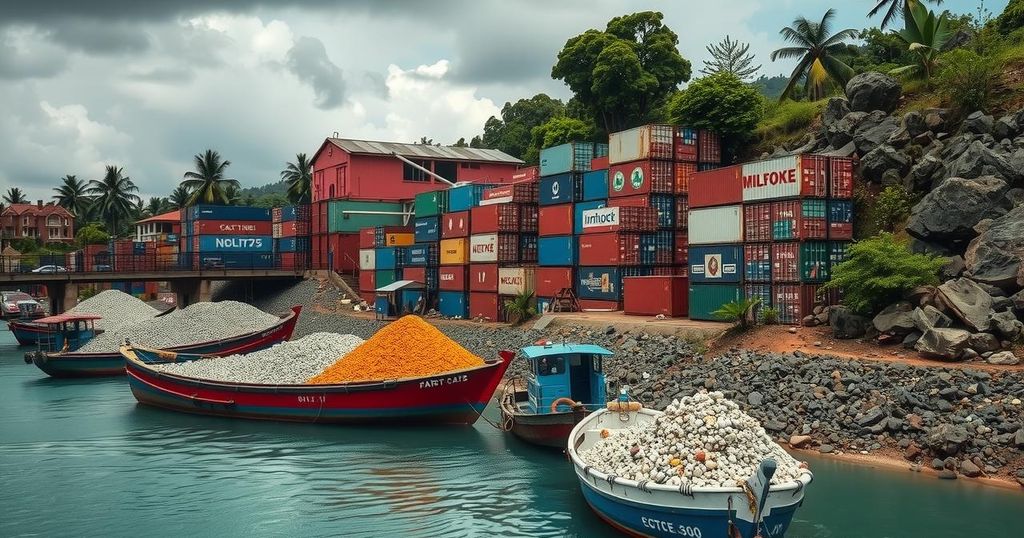Congo Rebels Illegally Export Coltan to Rwanda, Contaminating Mineral Supply Chain

A U.N. report reveals that rebel groups in eastern Congo illicitly exported over 150 metric tons of coltan to Rwanda, resulting in severe contamination of the mineral supply chain in the Great Lakes Region. This situation complicates the procurement practices of technology manufacturers, who are under increasing pressure to avoid conflict minerals in their products. Congo has taken legal action against Apple’s subsidiaries for alleged links to these conflict minerals.
According to a report by U.N. experts, rebel groups in eastern Democratic Republic of Congo have illegally exported at least 150 metric tons of coltan to Rwanda last year, causing significant contamination within the mineral supply chain of the Great Lakes Region. This alarming situation has arisen following the M23 movement, which has purportedly received support from Rwanda, as it seized control of the Rubaya area, known for its valuable mineral deposits used in technology.
The M23 group’s dominance in critical transport routes has resulted in a mingling of Rubaya’s minerals with those produced in Rwanda. The U.N. Security Council’s Group of Experts describes this development as the most extensive contamination of supply chains involving ineligible minerals in the region over the last decade. The report indicates that the rebels have instituted a mining ministry within the territories they occupy, thus monopolizing the coltan export business to Rwanda, securing around $800,000 monthly in taxes from coltan operations.
To maintain their grip on the mine, the rebels reportedly doubled diggers’ wages to discourage them from leaving and enforced forced labor to build transport routes for trucks. They have taken measures to ensure that only authorized Congolese and Rwandan traders could purchase the minerals from Rubaya. In response to these violations, Congo has initiated criminal complaints against Apple subsidiaries in France and Belgium for allegedly utilizing conflict minerals in their supply chain, though Apple denies these claims and maintains stringent supplier guidelines against sourcing from conflict zones.
The Great Lakes Region of Africa, encompassing parts of northeast Congo and Rwanda, has faced ongoing conflict and instability, particularly related to mineral resources such as coltan. Coltan is integral to the production of essential electronic devices, making its sourcing crucial for technology manufacturers. The M23 movement, primarily composed of Tutsi rebels, has been accused of exploiting local mineral wealth under the guise of governance, further complicating issues of conflict minerals and corporate responsibility in supply chains. The U.N. report highlights both the economic implications for the region and the ethical concerns for global technology companies involved in sourcing these minerals.
In summary, the illegal exportation of coltan by rebel groups in eastern Congo has resulted in a serious contamination of the mineral supply chain in the Great Lakes Region. The situation poses significant challenges for technology manufacturers seeking to adhere to ethical sourcing practices and highlights the ongoing conflict-driven exploitation of valuable natural resources in vulnerable regions. The complexity of this issue underscores the difficulties faced by corporations regarding accountability and transparency in their supply chains.
Original Source: www.hindustantimes.com








